Description
Mobile networks, cloud computing, and IoT have played a major role in supporting several critical applications like smart cities, smart grids, and e-health. In this context, it is important to note that IPv6 deployment has played a major role in all global digital infrastructures, both in legacy ISP’s, and in IoT/cloud computing networks. On the other hand there has been a tremendous growth in the production and storage of data that is private, and sensitive. Privacy issues and cyberattack threats pose several challenges in this context. Hence privacy-preserving data analysis, federated learning, and homomorphic encryption are important. An allied topic in relation to these technologies is Quantum transformation (QX). It’s the age of cyber physical systems and Quantum transformation will assist in providing radically novel technological services in measurement, computers, communication and simulation. This track will consist of talks and panel discussions on all the aforementioned topics.
In this Industry Forum Track, there will be three broad sessions namely,
- From Digital Transformation to Quantum Transformation
- IPv6-based 5G, IoT, Cloud Computing, Blockchain
- Secure Computing and DX With IoT Data
Track Chairs
Prof. Rajesh M Hegde, Indian Institute of Technology Kanpur, Kanpur UP, India
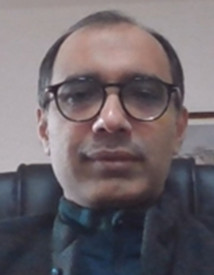
Rajesh M Hegde is a Professor and Head of the Dept. of Electrical Engineering at IIT Kanpur. He currently holds the Umang Gupta Chair Position and was also the P.K. Kelkar Fellow (2009-13) at IIT Kanpur. His areas of interest include Machine Learning, AI, future wireless networks, pervasive/mobile communication, WSN, IoT, speech/audio processing for ASR and VR, multimodal information fusion. He also has considerable interest in robotics applications.. He has also served as the Head of the Center for Continuing Education (CCE) at IIT Kanpur.
Ken Hatano, Senior Manager, Toshiba Digital Solutions Corporation, Japan
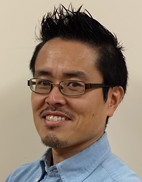
Ken Hatano is Senior Manager in Toshiba Digital Solutions Corporation. He started his career on embedded system firmware development, including Web DVD player, ADSL WiFi Router. He studied information networking in the US. After developing BIOS on Toshiba’s laptop PC in Japan, he lived in Seattle to work with Microsoft for more than 3 years. Back to Japan again, he started working on cloud and AI solution, and focused on strategic alliances by exploring partnerships to better leverage Toshiba’s AI/IoT solutions, worked as use case lead of the OpenFog Consortium. Now, he is working on DX engineer development. He has extensive ICT (information and communications technology), software development, cloud and AI experience. He has a Bachelor of Science degree in computer science, a master’s degree in computational intelligence and systems science from Tokyo Institute of Technology, along with a master’s degree in information networking from Carnegie Mellon University.
—————————————————————–
Indf-04-1: From Digital Transformation to Quantum Transformation
Abstract
For the past 10 years, GAFA has taken the hegemony. Calling the era of Cyber to Cyber DX1.0, there is growing interest in the data gathered on the physical side. We call this move DX2.0. It is the age of cyber-physical systems. And the big change brought about by quantum technology after that is called QX (Quantum Transformation). With the arrival of the quantum age, expectations for safe and secure lifestyles and societies through the use of innovative technologies is on the rise globally. Japan aims to establish itself as a “quantum technology innovation nation” by creating new industries that provide technological services such as materials, devices, measurement technologies, computers, communication and simulation technologies. Q-STAR will contribute to the realization of a ”quantum technology innovation nation” by exercising its leadership globally and promoting activities that contribute to the development of science and technology in the new era, as well as promoting Japanese industries and enhancing international competitiveness. In this session, we will first introduce the activities and aims of Q-STAR. Next, we will hold a panel discussion with key people from overseas on the cooperation between Q-STAR and quantum-related organizations around the world.
Chair
Dr. YUTAKA SATA, Executive Officer, Corporate Vice President, Toshiba Corporation
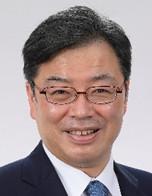
Dr. Yutaka Sata joined Toshiba in 1993, and now serves as an Executive Officer and as the Corporate Vice President responsible for promoting Toshiba Group’s research and development. R&D has always been front and center of Dr. Sata’s career, and he has contributed his wide-ranging experience and expertise, particularly in communications platforms and mechanical systems, to many research projects, both as team member and leader. Notable achievements include his contributions to the development of Bluetooth and its standardization. In addition to his work in Japan, Dr. Sata’s international experience includes stints at Toshiba’s Cambridge Research Laboratory in the United Kingdom, from 2005 to 2009, and at Toshiba (China) Co., Ltd.’s R&D Center, from 2012 to 2015. In 2020, Dr. Sata was appointed as a Corporate Officer and Vice President of the Corporate Research & Development Center. In 2022 he became an Executive Officer and Corporate Vice President of Toshiba, with a primary focus on Technology Planning and Research and Development. Dr. Sata graduated from the University of Tokyo and holds Dr. Eng. with School of Engineering of the University. He is married with two daughters, and in his free time he enjoys cooking and reading.
Mr. Shunsuke Okada, Deputy Executive Committee Chairman of QSTAR(Quantum STrategic industry Alliance for Revolution)
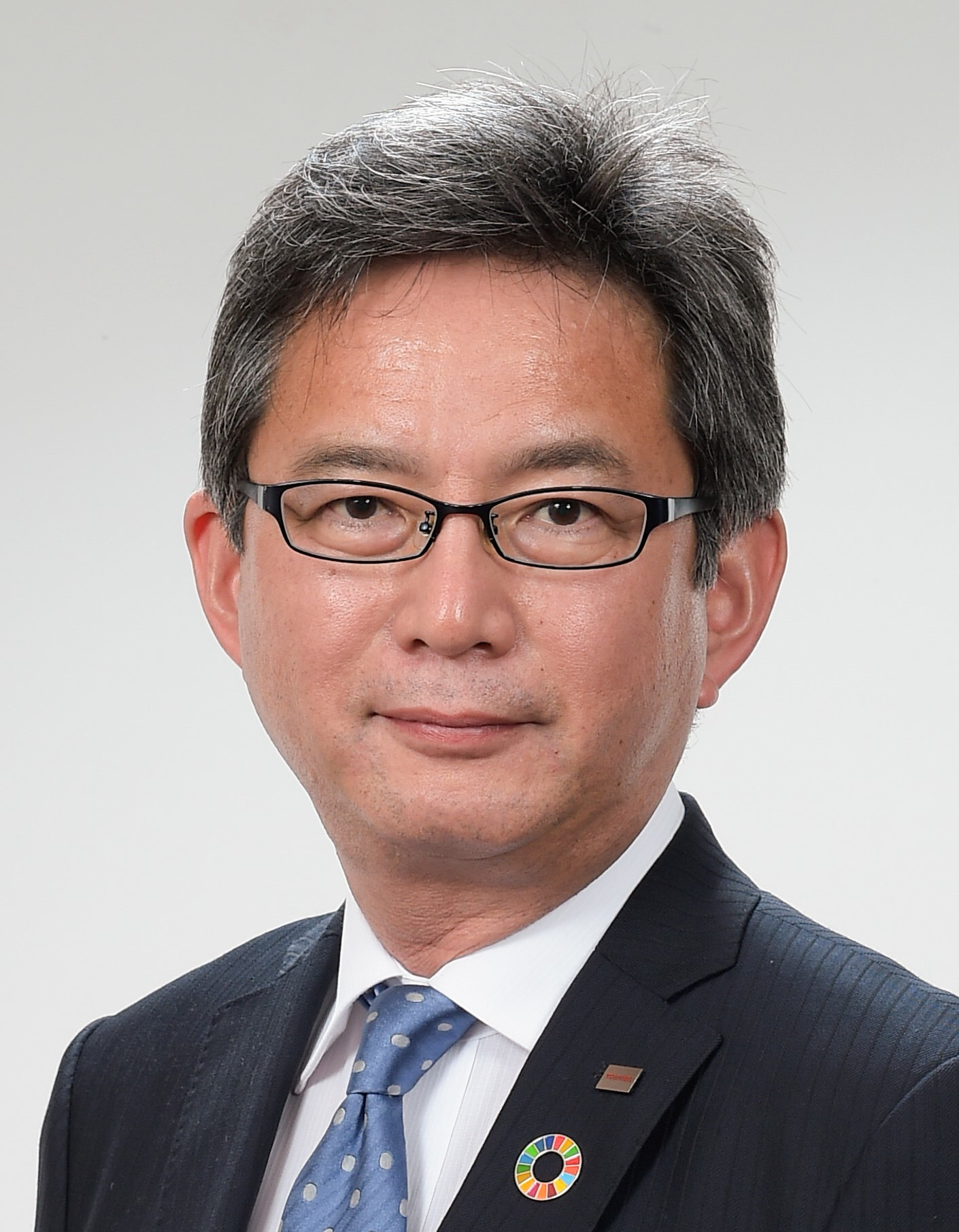
Shunsuke Okada joined Toshiba in 1985, and now serves as Chief Digital Officer, responsible for supporting Toshiba’s digital transformation and spearheading strategic business creation and promotion. He also oversees its digital solutions business as President and CEO, Toshiba Digital Solutions Corporation. Mr. Okada’s career has largely focused on the digital solutions business, and he has wide ranging experience and expertise in industrial solutions. As a sales and marketing professional he has contributed to and led many projects to advance industrial ICT in manufacturing, and in industrial and social infrastructure. In 2017, Mr. Okada was appointed Vice President of Toshiba Digital Solutions Corporation and head of its Industrial Solutions Division. In 2019, he became a Director of the company and head of its ICT Solutions Division. In 2020, he took on a concurrent post as Director, Toshiba Data Corporation. He was appointed to his current roles and became an Executive Officer and Corporate Vice President of Toshiba Corporation in March 2022. Mr. Okada is also appointed as Representative Director of General Incorporated Association ifLink Open Community, Chair, Executive Committee & Executive Director of Quantum STrategic industry Alliance for Revolution (Q-STAR) and Outside Director of WingArc1st Inc. Mr. Okada graduated from Jiyu Gakuen College. He is married with three children, and in his free time he enjoys playing golf and blowing the trumpet.
Speakers
Mr. Hidekatsu Kikuchi, Corporate Officer, Business Strategy and Promotion Dept., CHODAI CO.,LTD.
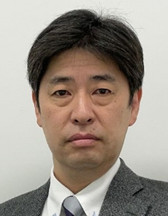
Hidekatsu Kikuchi majored in information engineering at university and mainly studied artificial intelligence. After joining Chodai Co., Ltd., he has been involved in IT consulting and system development projects in the field of construction. Currently, he is the General Manager of the Business Strategy Promotion Department, and in charge of projects for the development and implementation of use cases that utilize quantum technology in order to contribute to future city development.
Masayoshi “Matt” Terabe, Technology director, Quantum Transformation(QX) project, Sumitomo corporation, and Visiting associate professor, Tohoku university
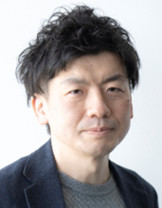
Masayoshi “Matt” Terabe, is the technology director of Quantum Transformation (QX) for the Sumitomo Corporation. He is also a visiting associate professor at Tohoku University in Japan. Matt received his M.S. in Quantum Engineering from Nagoya University in 2007 and has 13 years of engineering experience at DENSO Corporation. In 2020, he joined Sumitomo Corporation and launched a project to create a new business using quantum computing. He had been leading application demonstrations of quantum computing in various fields such as automotive industry, manufacturing, finance, energy, etc.
Mr. Osamu Toba, Head / General Manager, Quantum Technology Strategy Office, Planning & Development Department, Technology Strategy Center, DX Design Division, TOPPAN INC.
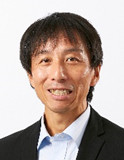
Osamu Toba is Head of Quantum Technology Strategy Office in Toppan Inc. He started his career on system development in Toppan Inc. He was responsible for research and planning in Corporate Planning Division and in Business Development & Research Division. Seconded from Toppan Inc., he served as senior fellow in 21st Century Public Policy Institute, Keidanren (Japan Business Federation) and as senior researcher in Bureau of Science, Technology and Innovation, Cabinet Office of the Government of Japan. He received his MS degree from Kyoto University and completed the research and residence obligations required as partial fulfillment for the degree in Graduate School of Informatics in Kyoto University. He researched conceptual design support using Genetic Algorithm.
Dr. Thierry Botter, Affiliation: European Quantum Industry Consortium (QuIC)
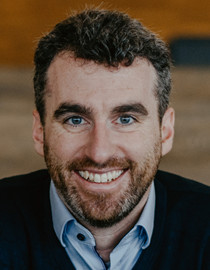
Dr. Thierry Botter is a successful business executive, and an expert in the area of quantum technologies. He currently heads the European Quantum Industry Consortium (QuIC), a large industry association dedicated to strengthening Europe’s commercial quantum solutions on the global stage. Dr. Botter previously held several leadership positions at Airbus, and served as a member of the first strategic advisory board for the European Commission’s Quantum Flagship. He holds a PhD in physics from the University of California, Berkeley, and a Master’s degree in aerospace engineering from the University of Illinois at Urbana-Champaign.
—————————————————————–
Indf-04-2: IPv6-based 5G, IoT, and Cloud Computing (Part 1, Hybrid)
Abstract
The IPv6 deployment has been progressing in all global digital infrastructures, i.e., not only in legacy wired ISP’s, but also in5G cellular networks, IoT and cloud computing networks.
These sessions will address: Identify gaps and recommendations of existing and required IPv6 standards in SDOs; Identify and describe IPv6 Network related use cases & specific scenarios, derived requirements and IPv6 networking challenges in the following areas:
- IPv6 based 5G (and beyond 5G) IP transport and cloud & IP network convergence
- IPv6 based enterprise networking and Industrial Internet
- IPv6 cybersecurity and management
- Automated networking e2e reference architecture, using IPv6; Describe an IPv6 based specific deployment best practices / guidelines and transition tools for: (1) IPv4 to IPv6, (2) dual stack to IPv6 only
The Forum will conclude with a panel discussion during which IoT experts and security experts will brainstorm how to implement security in the design of a DX plan.
Chair
Dr. Hiroshi Esaki, The University of Tokyo
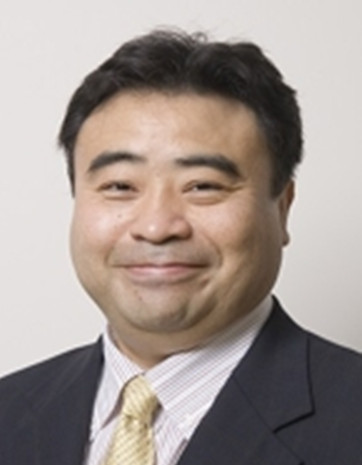
Hiroshi Esaki Ph.D received the B.E. and M.E. degrees from Kyushu University, Fukuoka, Japan, in 1985 and 1987, respectively. And, he received Ph.D from The University of Tokyo, Japan, in 1998. He is a co-founder of series of IPv6 special project in the WIDE project. He is an executive director of IPv6 promotion council, which is cross ministry and cross industry council to promote the IPv6 technology. As the activities of IPv6 promotion council, he has established the following working groups, that are aiming to explore and to deploy the IPv6 as the professional and business operation. He successfully standardized the TCP/IP based architectural framework as IEEE1888 in IEEE, and proposing to NIST SGIP CoS (Catalogue of Standard) in US and to ISO/IEC JTC1 SC6. He is also a vice chair of Japan Network Information Center (JPNIC), since 2006, and has served as an IPv6 Forum Fellow and chair of IPv6 Ready Logo Program Commitee. From 2006 to 2010, he served as Board of Trustee for Internet Society. He is a director of WIDE Project since 2010, director of Japan Data Center Council since 2009, and director of Green University of Tokyo Project, which is one of the important and killer application of IoT for 21st century, since 2008.
Speakers
Dr. Jun Murai
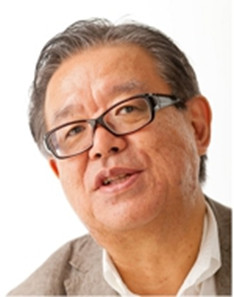
Jun Murai established JUNET, the first network in Japan connecting multiple universities, in 1984. In 1988, established the WIDE Project, a Japanese Internet research consortium. Has long been engaged in research related to Internet technology platforms, and is known as the Father of the Internet in Japan and in international circles as the Internet Samurai. He is a Special Advisor to the Japanese Cabinet, an Advisor to the Digital Agency and serves on many other governmental committees, and is active in numerous international scientific associations. He was inducted into 2011 IEEE Internet Award / the 2013 Internet Hall of Fame (Pioneer).
Dr. Latif Ladid
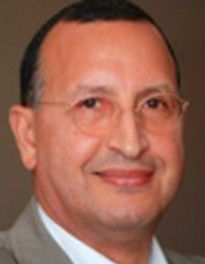
Founder & President, IPv6 FORUM, Emeritus Trustee Internet Society, Member of 3GPP PCG (Board), Founding Co-Chair IEEE 5G World Forum, Co-Chair IEEE Blockchain World Forum 2022, Former Chair IEEE IoT World Forum, Chair ETSI IPv6 Industry Specification Group, Member of UN Strategy Council, Member of Future Internet Forum EU Member States (representing Luxembourg), Research Fellow @ University of Luxembourg ( since 2006) on multiple European Commission Next Generation Technologies Projects.
Dr. Sureswaran Ramadass
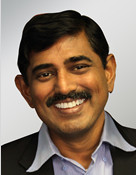
Professor Sureswaran Ramadass is Professor Emeritus at the Malaysian University of Science and Technology (MUST). His current area of focus includes IPv6 Security and IPv6 over 5G. His last position was as the Chairman of the ITU/UN (International Telecommunications Union) IPv6 and IOT Center of Expertise. Prior to this, he was the founding Director and Professor at the National Advanced IPv6 Centre of Excellence (NAV6), Universiti Sains Malaysia. As the Director of Nav6, he was instrumental in the successful implementation of IPv6 in Malaysia. He obtained his BsEE/CE (Magna Cum Laude) and Masters in Electrical and Computer Engineering from the University of Miami in 1987 and 1990 respectively. He graduated top student in the College of Engineering. He obtained his PhD from Universiti Sains Malaysia (USM) in 2000 while serving as a full time faculty .
Mr. Liu Dong
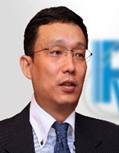
Member of the IEEE-SA Standards Board and the IEEE-SA New Standards Committee -Vice President of IPv6 Forum -Vice-chairman of the Internet Society of China -Vice-chairman of the Cybersecurity Association of China -Member of World Internet Conference 2018 Annual Meeting of the Second High-level Advisory Council (HAC) -Member of the General Expert Team of New Generation Broadband Wireless Mobile Communication Network Major Project (03 Project) -Responsibility Expert of Next Generation Internet Pilot Cities in China -Member of the Expert Team of Telecommunication Law of Legal Affairs Office of the State Council -Member of China Informatization 100-Member Association -Chair of ISO/IEC/IEEE 18880 Committee -Founder, Deputy Director & Secretary-General of China Strategic Alliance of Smart Energy Industrial Technology Innovation -Deputy Chair, Zhongguancun (Z-Park) Internet of Things Alliance -Founder & Chair, Z-Park NGI (Next Generation Internet) Industry Alliance -Chair, Global IPv6 Enabled Committee -Director, Global IPv6 Test Centre -Director, Global SDN Certified Testing Center -Chief Representative of Open Networking Foundation in China -Deputy Director of China SDN Commission -Adjunct professor at Beijing University of Posts and Telecommunications -Adjunct professor at Beijing Jiaotong University
Mr. Shine Liu
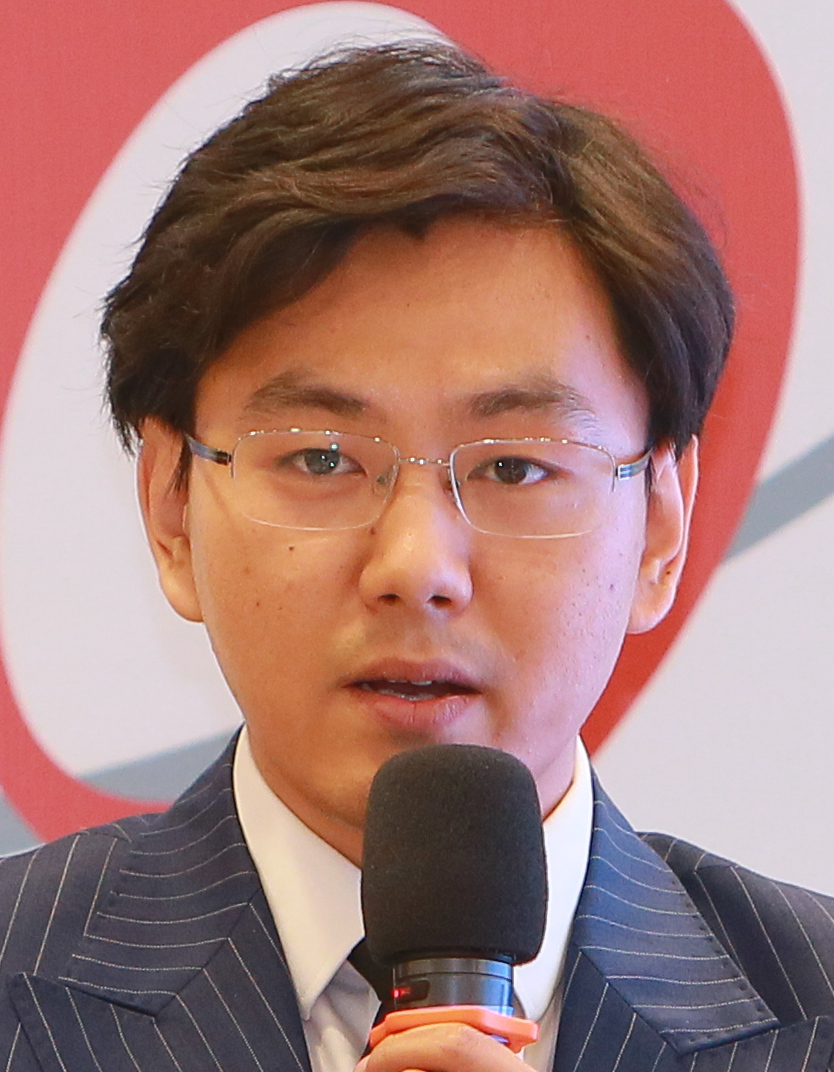
He received his Master degree in both University of New South Wales and Guangdong University and Foreign Studies, faculty of arts and social sciences. He used to work as an interpreter at the Ministry of Foreign Affairs of China. Then he served as assistant to CEO at a public company. He now serves as assistant president in China Future Internet Engineering Center, working on international cooperation and dealing with international projects that the center participates, and he’s dedicated in pushing forward the deployment of IPv6 in China as well as global data cooperation.
Mr. Hakan Yuksel
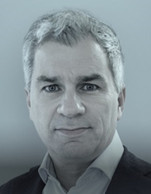
Mr Yuksel has over 20 years of executive experience with enterprise-grade software providers. His experience includes serving as Country Leader for Oracle in Germany and over 15 years at SAP, where he held executive positions in divisions across Europe and South Africa. In addition to his management experience, Mr Yuksel has acted as an advisor to venture capital and private equity firms active in the technology sector. Since 2020, Mr Yuksel has been the Chapter Chairman for YPO (Young Presidents’ Organization) in Zürich, Switzerland. He holds a Finance degree from the European Business School Paris and completed the Advanced Management Program (AMP) from Harvard Business School.
Dr. Alessio Pagani
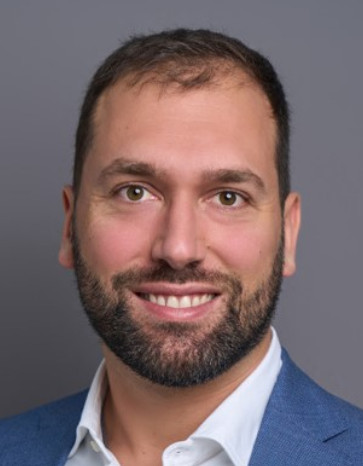
Alessio was born as a computer engineer and holds a PhD in Information Technology from Politecnico di Milano. During his graduate years, he also developed the business aspect of his research interests, cofounding one of the first Italian startups involved in the design of blockchain solutions. Following a postdoc at the Alan Turing Institute, Alessio joined nChain as a researcher. His scientific activity focuses on the emerging dynamics of the Bitcoin network and on industrial applications of blockchain technologies, including IPv6, IoT, data-management, and micropayments.
—————————————————————–
Indf-04-3: IPv6-based 5G, IoT, and Cloud Computing (Part 2, Online)
Abstract
The IPv6 deployment has been progressing in all global digital infrastructures, i.e., not only in legacy wired ISP’s, but also in5G cellular networks, IoT and cloud computing networks. These sessions will address: Identify gaps and recommendations of existing and required IPv6 standards in SDOs; Identify and describe IPv6 Network related use cases & specific scenarios, derived requirements and IPv6 networking challenges in the following areas:
- IPv6 based 5G (and beyond 5G) IP transport and cloud & IP network convergence
- IPv6 based enterprise networking and Industrial Internet
- IPv6 cybersecurity and management
- Automated networking e2e reference architecture, using IPv6; Describe an IPv6 based specific deployment best practices / guidelines and transition tools for: (1) IPv4 to IPv6, (2) dual stack to IPv6 only
The Forum will conclude with a panel discussion during which IoT experts and security experts will brainstorm how to implement security in the design of a DX plan.
Chair
Dr. Hiroshi Esaki, The University of Tokyo

Hiroshi Esaki Ph.D received the B.E. and M.E. degrees from Kyushu University, Fukuoka, Japan, in 1985 and 1987, respectively. And, he received Ph.D from The University of Tokyo, Japan, in 1998. He is a co-founder of series of IPv6 special project in the WIDE project. He is an executive director of IPv6 promotion council, which is cross ministry and cross industry council to promote the IPv6 technology. As the activities of IPv6 promotion council, he has established the following working groups, that are aiming to explore and to deploy the IPv6 as the professional and business operation. He successfully standardized the TCP/IP based architectural framework as IEEE1888 in IEEE, and proposing to NIST SGIP CoS (Catalogue of Standard) in US and to ISO/IEC JTC1 SC6. He is also a vice chair of Japan Network Information Center (JPNIC), since 2006, and has served as an IPv6 Forum Fellow and chair of IPv6 Ready Logo Program Commitee. From 2006 to 2010, he served as Board of Trustee for Internet Society. He is a director of WIDE Project since 2010, director of Japan Data Center Council since 2009, and director of Green University of Tokyo Project, which is one of the important and killer application of IoT for 21st century, since 2008.
Speakers
Tomoya Yoshida, NTT Communications
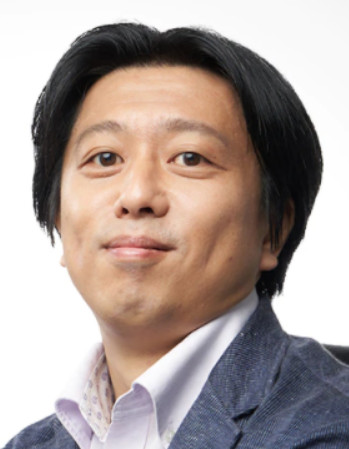
Tomoya Yoshida started his career at NTT in 1998, and began to involve in Internet backbone operations and R&D. In 1999, he started the IRR (Internet Routing Registry) service at NTT, and in 2001, he launched the JPNIC IRR service to improve the reliability of Internet routing in Japan. Since then, he has served as APNIC Routing-SIG Chair, APOPS Chair, and JPNIC IP Address Committee Chair, leading the development of Internet routing technology and routing security industry. In 2011, when IPv4 addresses were exhausted in the Asia-Pacific region, he worked on the transition to IPv6 as well as the creation of a policy for the equal distribution of IPv4 addresses worldwide. In 2020, he established the CONECT (COuncil for Network Efficiency by Cross-layer Technical members) with the Ministry of Internal Affairs and Communications with the goal of facilitating the efficient distribution of Internet traffic among multi-stakeholders such as ISPs, CDNs, CSPs, and IXs in Japan. He chairs CONECT and continues to contribute to the development of the Internet.
Yasunobu Toyota, Broad Band Tower, In
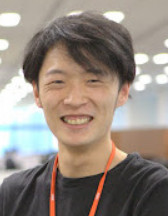
Yasunobu Toyota is a researcher in the Cloud & SDN Laboratory at Broad Band Tower, Inc, and a Ph.D. student at the Graduate School of Media and Governance, Keio University. He received his Master’s degree in media and governance from Keio University in 2020. His research interest covers network operation technology (traffic engineering, IPv6 transition mechanism, routing protocol, etc) and Software Defined Networks. He is a board member of the WIDE Project.
Yasushi Kidani, NTT DoCoMo
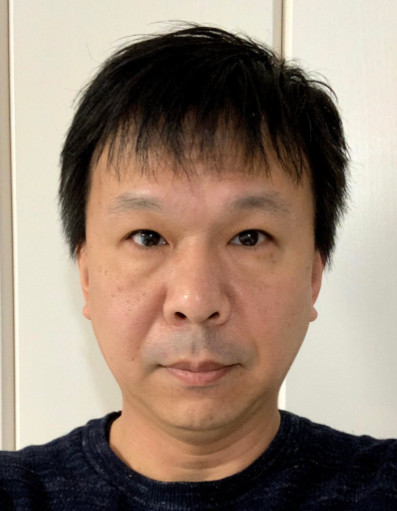
Yasushi Kidani is a deputy GM of Service Design Dept., NTT Docomo. In 2021 he was transferred to the current position and engaged in design/development/operation of service platform and IP network for over 84 millions of NTT Docomo mobile customers. In addition, he had over 20 years of experience as a platform engineer and an architect in content delivery platform / IPTV (over IPv6 multicast network) in NTT group companies.
Satoshi Nagata, NTT DOCOMO, INC.
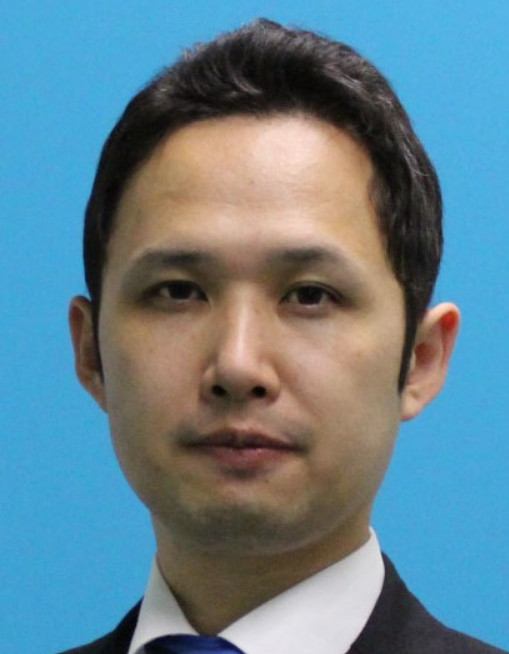
Satoshi Nagata received his B.E. and M.E. degrees from Tokyo Institute of Technology, Tokyo, Japan, in 2001 and 2003, respectively. In 2003, he joined NTT DOCOMO, INC. He worked on the research and development for wireless access technologies for LTE, LTE-Advanced, and 5G. He had contributed to 3GPP over 15 years, and contributed 3GPP TSG-RAN WG1 as a vice chairman during November 2011 to August 2013, and contributed as a chairman during August 2013 to August 2017. He had also contributed 3GPP TSG-RAN as a vice chairman during March 2017 to March 2021, and currently a vice chairman of 3GPP TSG-SA since March 2021
Takaya Watanabe: SoftBank Corp.
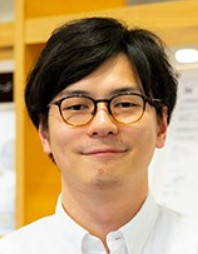
Takaya Watanabe is a mobile network architect and manager, IP & Transport Technology Division, SoftBank Corp. SoftBank is one of the mobile network operators in Japan and is a global leading company in SRv6, working on the development of enhanced SRv6 functions for 5G and Beyond 5G services. From 2014 to 2016, he worked as peering manager of SoftBank Internet network connecting with many ISPs/CSPs globally and designed Wi-Fi core networks for enterprise services. He has been in charge of mobile network design since 2017 and is currently responsible for deploying SRv6 to mobile networks.
—————————————————————–
Indf-04-4: Secure Computing and DX With IoT Data
Abstract
The past decade has seen tremendous growth in the adoption of IoT and data streaming devices in our daily lives and a concurrent surge in the production and storage of mostly private, sensitive data. Many data owners – particularly businesses – would like to analyze the data and leverage hidden nuggets of information to improve their decision-making processes. However, compliance with privacy regulations and the threat of cyberattacks pose heretofore unknown challenges to design and deploy digital transformation initiatives. Approaches to address this issue, collectively known as secure computing, include: privacy-preserving data analysis, federated learning, multi-party computation, and homomorphic encryption. This forum features talks and discussions by distinguished experts from:
1. industries that generate IoT and massive data streams, who will describe properties their IoT data and challenges they face in executing digital transformation plans, and
2. the secure computing domain, who will give an overview of emerging technologies for secure computing that
- enable analysis of data while in encrypted form
- add just enough noise to anonymize sensitive parameters in the data while yielding meaningful results from analysis (statistics, trends, …)
- support local computation of deep learning models whose weights are aggregated to compute a global deep learning model (while keeping all sensitive, raw data in the hands of its owners).
Chair
Dr. Mei Kobayashi, Research Engineer at EAGLYS, Adjunct Faculty Member at Tsuda University and Visiting Researcher at Okinawa Institute of Science and Technology
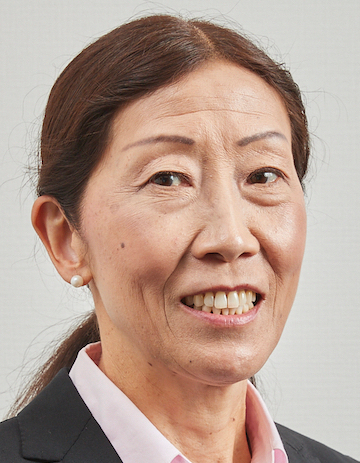
Mei Kobayashi received a Bachelor’s degree from Princeton University and an MA and PhD in Applied Mathematics from the University of California at Berkeley. In 1988, she joined IBM Research as a Researcher and was promoted to Senior Researcher and Technical Advisor to the Director at IBM Research in Tokyo. In 2016 she joined NTT Communications, Customer Services Division in Tokyo as a Data Science Specialist and Manager to implement a company-wide DX initiative. In 2021 she joined EAGLYS, a start-up in Tokyo, specializing in secure computing and AI/ML/DL. She has been actively involved in academia. She was a Visiting Associate Professor at the University of Tokyo, when she edited a book on wavelets published by SIAM. She has taught courses at the University of Tsukuba, University of Electro-Communications, Hiroshima University, and Kyoto University. She is currently an Adjunct Faculty Member of Tsuda University and a Visiting Researcher at Okinawa Institute of Science and Technology. She is an Editorial Board Member of the Communications of the ACM (CACM) – News Section, and recently became the founding Editor of the Careers in Computing Section of CACM.
Mr. Hiroki Imabayashi, Founder and CEO of EAGLYS
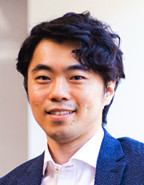
Hiroki Imabayashi received his Bachelor’s degree and MS from Waseda University. He began research work on data mining applications of Fully Homomorphic Encryption (FHE) in 2015, as a participant in a research project supported by Japan Science and Technology Agency (JST) CREST. During the project, he published multiple white papers. In 2016 he founded EAGLYS, a start-up that specializes in implementing practical applications of Homomorphic Encryption and Privacy Enhancing Technologies (PETs) in the private sector across a wide range of industries; EAGLYS has since expanded its business services to include Data Science, Machine and Deep Learning, and AI. In 2019, he became an AI strategy advisor for Tokyu Housing Leasing, and EAGLYS received the Forbes Japan Rising Star Award. In 2020, he became a member of the AI Working Group at Consumer Affairs Agency and received the Small and Medium Business Administration Commissioner’s Award for his work as, “a manager of a highly motivated venture company that conducts innovative and high-potential businesses that contribute to solving social issues”.
Speakers
Dr. Yukio Uematsu, Senior Data Scientist, NOKIA and Visiting Researcher at Tokyo University of Science
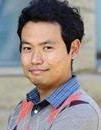
Yukio Uematsu received his BS, MS and PhD in computer engineering from Tokyo University of Science. In 2003 he joined NTT’s Research Division as a Researcher. During his career at NTT, he worked in the data mining area, on projects involving: search engine development, distributed data processing, and network operation automation. From 2012 to 2014 he was a visiting scientist at Infolab at Stanford University. Upon returning to Japan in 2014, he co-founded the first data science team at NTT Communications as a unit leader. In 2019, he joined Nokia as a Senior Data Scientist and Lead Engineer at Global R&D, where he works extensively with IoT data. He is also a Visiting Researcher at the Tokyo University of Science, where he is researching and developing new technologies involving IoT data. He is a co-founder and a board member of JPHacks, the biggest hackathon in Japan.
Dr. Peter Small, Chief Medical Offer of Hyfe
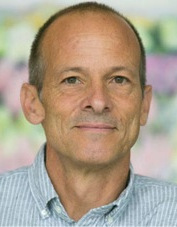
Peter Small received a Bachelor’s degree from Princeton University and Doctor of Medicine from the University of Florida. He began his career as a medical and chief medical resident at UCSF. He completed an Infectious Disease fellowship at Stanford University before becoming a faculty member of their Infectious Disease Division. In 2002 he joined the then nascent Bill and Melinda Gates Foundation, where he: developed their tuberculosis strategy; built the Foundation’s core partnerships and country programs; hired and managed the Foundation’s TB team; and oversaw a large portfolio of vaccine, drug and diagnostic product development and deployment activities. In 2011, he moved to India to establish the Gates Foundation’s TB work in India. In 2015 he joined Stony Brook University as the Founding Director of the Global Health Institute and focused on use of drones and technologies to deliver health care in remote Nepal and Madagascar. He was a Founding Fellow at the Rockefeller foundation to work on improving health in low and middle Income countries and as the medical lead for Bill Gates’ design build firm, Global Good/Global Health Labs. In 2021 he moved to Hyfe, a start-up specializing in acoustic epidemiology, e.g., diagnosis of coughs using cough and medical data transmitted for analysis via smartphone apps and follow-up care.
Dr. Hayato Yamana, Waseda University, Faculty of Science and Engineering
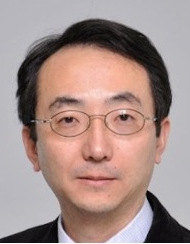
Hayato Yamana received a Dr. Eng. degree from Waseda University. He began his career at the Electrotechnical Laboratory of the former Ministry of International Trade and Industry (MITI), and was moved to MITI’s Machinery and Information Industries Bureau for a year in 1996. He became Associate Professor of Computer Science and Engineering at Waseda University in 2000, and Professor in 2005. Since 2010, he has been Director of Database Society of Japan (DBSJ). He was Director of Information Processing Society of Japan (IPSJ) and Vice Chair of the Information and Communication Society of the Institute of Electronics, Information and Communication Engineers (IEICE). At Waseda University, he was Deputy Chief Information Officer from 2015 to 2020. Since Oct. 2020, he has been Vice President for IT Promotion and Chief Information Officer. His research interests include fully homomorphic encryption, big data analysis and computer architecture. From 2015 to 2021, he led a JST CREST project, “Secure Data Sharing and Distribution Platform for Integrated Big Data Utilization” that achieved over 1,000 times speedup of Fully Homomorphic Encryption (FHE) applications.
Dr. Naohiko Uramoto, Director, Data & Advanced Technology, Mitsubishi Chemical Group Corporation
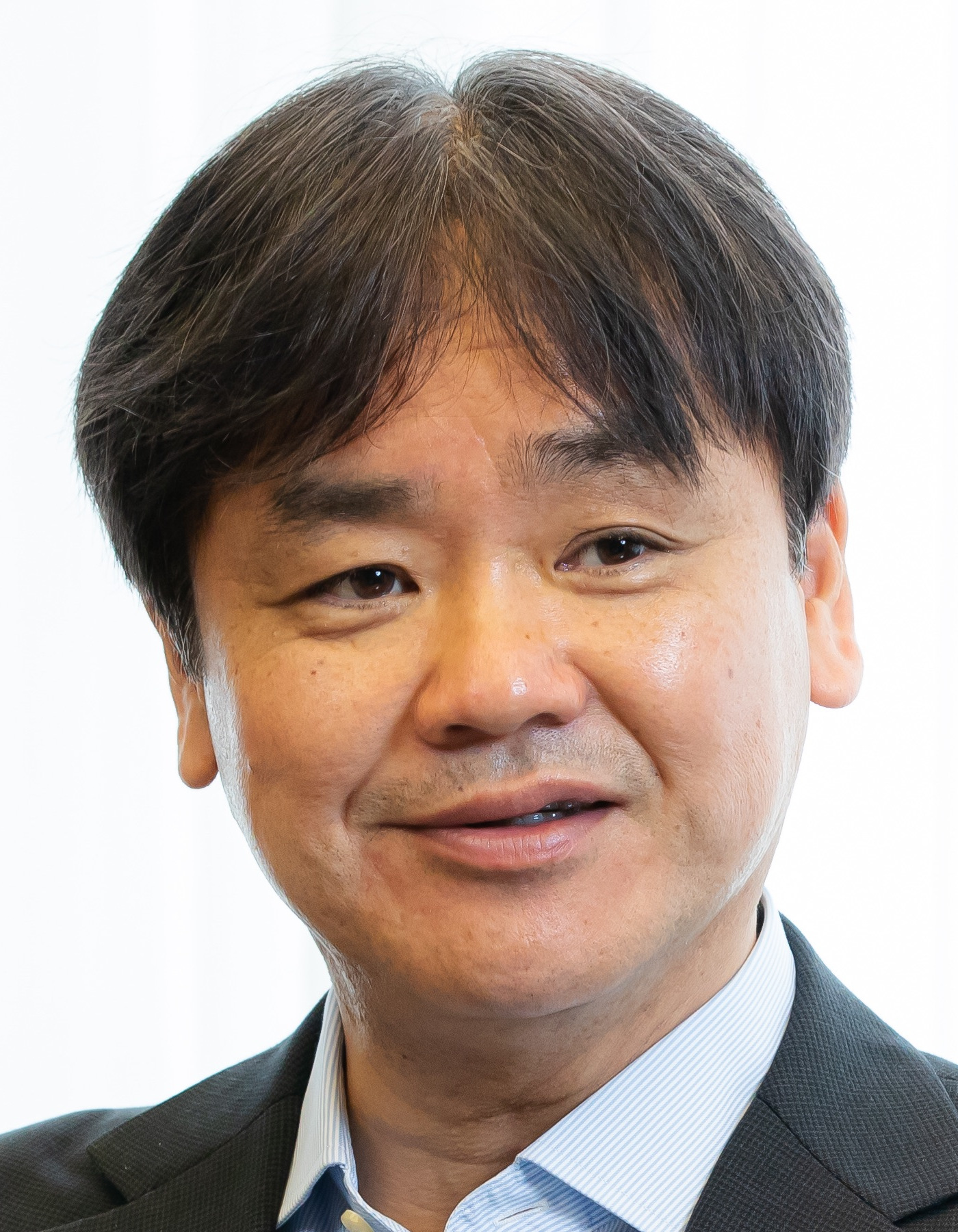
Naohiko Uramoto received a doctorate in Computer Science from Kyushu University. In 1990 he joined IBM’s Research Division and focused on natural language processing, Web services, and its security. In 2015 he moved to IBM Software and System Development Lab, where he was Manager of Cloud Development, then CTO of IBM Bluemix/Blockchain Garage in Tokyo. In June 2017 he joined Mitsubishi Chemical Holdings as the Chief Digital Technology Scientist, and in 2020 he became Chief Digital Officer. He is currently leading digital transformation for Mitsubishi Chemical Group Corporation as Director of Data & Advanced Technology. He is a Visiting Professor at Kyushu University and Shizuoka University. From 2018 to 2020 was the President of Japanese Society for Artificial Intelligence.


